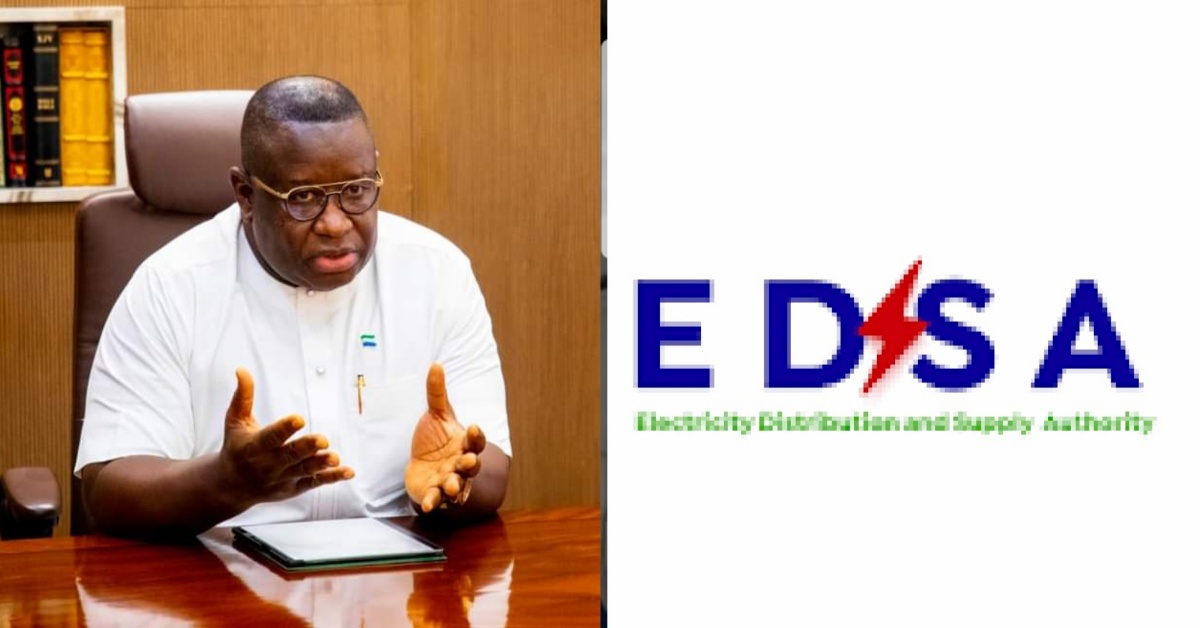President Julius Maada Bio has outlined his government’s commitment to tackling Sierra Leone’s energy challenges.
In his address to the nation on Independence Day, Bio described reliable electricity as a “critical need” for the nation’s progress.
Speaking during the address, the President said his administration has embarked on addressing the “key structural and systemic problems” that have hindered the energy sector for decades. He added that while the corrective measures will take time to yield tangible results, he is confident that the country will soon transition from temporary fixes to a reliable and sustainable energy supply.
“We have completed repairs on the Kingtom power plant, and ongoing works at Blackhall Road will soon be completed. Together, these facilities will add 25 megawatts to our national grid,” Bio said.
He also mentioned the launch of major transformational projects, including the Nant Energy Generation project, aimed at delivering 120 megawatts of power, and the RESPITE project, which will contribute 40 megawatts of solar energy to the grid.
On the international front, the President expressed optimism about Sierra Leone’s participation in the Mission 300 project — an Africa-led initiative to provide electricity access to 300 million people across Sub-Saharan Africa by 2030.
“Our inclusion in this project is the result of my persistent engagements with our international partners,” he said.
Bio also said his administration’s rural electrification agenda will see solar energy installations expand in rural towns, supported by a €50 million European Union-led project.
President Bio concluded by reassuring citizens that his government remains steadfast in its drive to transform the country’s energy landscape for the better.
Sierra Leone has been suffering from systemic power outages for decades. Although the situation has improved in recent times, intermittent power cuts are still prevalent, especially during the dry season when the Bumbuna Hydro Dam will not have sufficient water to power the national grid.
The West African national currently purchases electricity from a Turkish company, Karpowership which experts say is expensive for a low-income country.












Still at planning stage. SALONE sorry